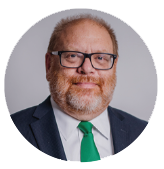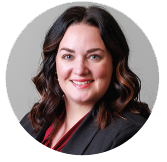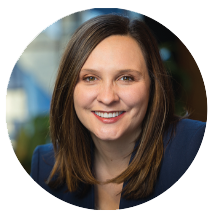Building a Pipeline of Professionals Through Fellowships
Programs like Edina’s fellowship help cities meet workforce needs while giving future public sector leaders a head start on their careers.
By Suzy Frisch
When Edina City Manager Scott Neal started a fellowship program in 2012 to train a new generation of city leaders, he viewed it as a way to give back to his profession and open doors for others. As it turns out, his plan to create an extensive training program was visionary in all the best ways.
In recent years, local governments of all shapes and sizes have been confronting the challenge of attracting and retaining employees. It’s a problem that will continue to worsen in the next decade as members of the baby boomer generation retire in greater numbers.
In a 2025 report “Strengthening Public Service: Workforce Challenges and Opportunities for Local Government Entities in Minnesota,” the Citizens League, League of Minnesota Cities, and Association of Minnesota Counties identified challenges and opportunities for the local government workforce. It notes, “For decades, Minnesota has boasted high levels of civic engagement and community involvement, including in public sector staffing — elected, appointed, and hired. But in recent years, the robust pipeline of local government employees has been dwindling.”
To be clear, Minnesota is not alone in facing these obstacles. Nationally, counties and cities faced setbacks during the COVID-19 pandemic when the public sector experienced an exodus of employees. More recently, public sector employment has lagged 2% lower than before the pandemic, affecting a wide swath of skilled and technical roles, according to the report.

City manager, Edina
Survey respondents said that it’s difficult to recruit, retain, and advance employees covering numerous local government jobs, including public safety, maintenance, information technology, and human services. The report offers many recommendations, including this one for improving recruiting: “Build intentional partnerships with existing pathways and pipeline programs (such as cadet programs, pathways to policing, apprenticeships, internships, or fellowships) or develop new programs geared to your local communities and students.”
When Neal launched Edina’s fellowship program, he envisioned an opportunity for emerging leaders to get immersed in the day-to-day responsibilities of running a city. Having worked in public sector positions for 36 years, he understands the importance of providing opportunities for hands-on learning and increasing job prospects in the profession he loves.
“As I started the second half of my career as a city manager, I really felt that I needed to make sure there were enough people to do this work in the future,” Neal said. “I really viewed it as a professional obligation to try to bring new young people into my line of work.”
Learning the municipal ropes
In Edina, the program is designed to give fellows a deep dive into city operations. They get embedded in various departments to observe directors’ roles and responsibilities and how they manage people and projects. Fellows participate in regular staff meetings with directors, attend other internal and external meetings, and tackle wide-ranging projects that are part of Edina’s regular cadence of work. That might mean pitching in on the city’s budget or analyzing its staffing levels compared to nearby cities. Fellows also interact with local, county, and state elected officials, as well as staff from other neighboring cities.
“I think they get to see the internal workings of a small bureaucracy. In a city like Edina, we have a pretty broad array of city services from police and fire and 911 to outdoor pools and public works and public health,” Neal said. “They get exposure to all of that — sometimes more in some areas than others — and they get different experiences that they knit together and take with them. Wherever they go, they will probably encounter something they saw when they were doing their fellowship here.”
The fellowship began as a one-year program, but Edina expanded it after eight years. With these in-depth learning and leadership opportunities, Neal aims to prepare fellows to work as city managers, city administrators, or assistant city managers. Most alumni find jobs in the Twin Cities or elsewhere in Minnesota, making it a win-win for the public sector, Neal said. “It helps the profession by contributing to the pool of good candidates for future city administrator positions wherever they are in America.”
And it’s not just a one-way street. Neal appreciates the opportunity for him and other Edina staffers to learn from young people with innovative ideas and fresh perspectives. “We get a lot out of it at the local level, too,” he said. “I learn something from them every day that helps me do my job better.”
Ready and willing

City manager, White Bear Lake
Lindy Crawford, city manager of White Bear Lake, completed Edina’s one-year fellowship in 2015 after graduating with undergraduate and graduate degrees in urban and regional studies from Minnesota State University, Mankato. Though she didn’t know exactly how she wanted to apply her education, she was interested in following in her grandfather’s footsteps as a city manager. Crawford’s fellowship confirmed that choice by providing rich experience and insight into that career.
As a fellow, Crawford had the opportunity to focus on an area where she needed more experience, and she picked engineering. She attended weekly staff meetings and got involved in several engineering projects, building her knowledge in this key city function.
Crawford also worked on an employee engagement survey, which has proved very useful in her career, and handled all the planning and logistics for council members and staff to attend the National League of Cities annual conference. In addition, she partnered with the assistant city manager on a small area plan, gaining experience in community development and interacting with committee members and resident stakeholders.
When it came time for Crawford to start her career, she felt well prepared. “This can be a grueling, 24-7 job. By having a wide variety of experiences that the fellowship can offer, you’re going to find out early on whether it’s for you,” she said. “A huge benefit is getting experience early and taking on projects to understand and get a real flavor of what this is like.”
Crawford hit the ground running after completing her fellowship, landing her first job as Tonka Bay city administrator. She then became city administrator and public utilities general manager in Mora before starting in White Bear Lake in 2021.
Ari Lenz, Edina’s first fellow and now its assistant city manager, completed her fellowship while earning her master’s in public administration from the University of Kansas. Overall, Lenz sought a job that played to her skills as a generalist, problem solver, process improver, and community builder. Completing the Edina fellowship showed her a path.

Assistant city manager, Edina
During her one-year stint, Lenz worked on the city’s budget, got steeped in human resources classifying jobs for compensation, and completed community engagement projects, all while engaging meaningfully with department directors. Those experiences proved especially valuable in her first city administrator job in Madison Lake, where Lenz wore many hats. Then she spent eight years in Hopkins as assistant city manager before rejoining the Edina staff in 2024.
Programs like Edina’s fellowship get people ready for local government roles, giving them confidence to tackle significant and ever-changing responsibilities, Lenz said. “People need the opportunity to learn, and to learn how to do problem-solving on the spot. We never know the next thing that’s going to hit us, and we need to be able to figure that out.”
The program also shines by giving fellows ample chances to build a network of local government leaders to call on for counsel, ideas, and support. The Edina fellows stay in close touch with each other and other city leaders, getting together regularly. “Once you leave here, you’ve got a lifetime guarantee that we’ll stay in contact, help each other, and continue to work together,” Neal said.
Crawford agrees, stressing how essential it was for her to begin building her network during her fellowship — something she has continued doing. “You don’t have to do this work alone,” she adds. “When you build your network, you reach out to them often and you’re there for each other. It’s good work and it’s challenging work. It’s important that we share knowledge so that we can all be better.”
Overall, fellowships give future city leaders the expertise and confidence to make a difference in the public sector, no matter where they establish roots. Through mentorship, hands-on learning, and a window into cities’ daily functions, the next generation of leaders can be prepared to take on emerging challenges. “I’m very happy to be part of creating an experience for fellows and building out the workforce of the future,” Lenz said. “It’s both giving back to the profession and strengthening it.”
Suzy Frisch is a freelance writer.

